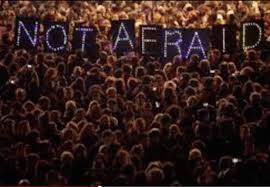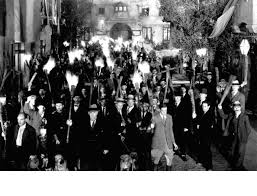I don’t make New Year’s resolutions. Still, it’s always a good idea to reflect, and to pinpoint areas for personal growth and good stuff like that. So in 2015, I will try to be more patient and less quick to anger.
Of course, we Latinos are known for our fiery tempers. We’re also known for being excellent lovers, great artists, and unemployed… well, some stereotypes are more positive than others.
The point is that I know my temper is not the best. But it apparently pales in comparison to some of my fellow Latinos. And that is part of a larger problem.
You see, ethnic minorities in general are often portrayed as overly emotional and aggressive. Just look at the stereotype of the angry black woman.
Now, if we are angrier, it may be because we have more to be hostile about. Just look at the economic data, or the quality-of-life statistics, or, I don’t know, the trend of us getting shot more often.
But there’s something more going on here, besides justified anger. It is in the best interest of the establishment to portray minorities as angry, unreasonable, and illogical. After all, it is a lot easier to dismiss someone’s grievances if that person is always flying into rages over every little thing, or if she/he perceives every minor slight as a major injustice.

And being dismissive is a most effective tactic. Think of how many issues have been erased with the offhand remark that it was all just so much misplaced fury and political correctness.
By the way, I’ve written before, nothing has been PC since the 1990s, and this lazy rebuttal no longer means anything. I mean, some people believe that being against torture is PC — and how crazy is that?
But I digress. The point is that whenever Latinos, or any minority, complain about an injustice or societal problem, there will be plenty of people who offer a smirk and the calm, apparently reasonable explanation that we are just being angry because we’re, you know, prone to volatility and irrational behavior.
Earlier this year, when President Obama declined to address immigration reform before the midterms, we heard how many Latinos were in an eye-popping rage. It was an easy concept to Google.
Or to present a less politically charged issue, consider the case of Banditos, a San Francisco restaurant. When Hispanic leaders pointed out — calmly and respectfully no less — that the name was a negative stereotype, the owners agreed and changed the name.
But message boards decried the apparent appeasement to angry Latinos, and many people vowed never to eat there unless it changed its name back. The irony, of course, is that the angriest, most threatening people in the whole situation were the ones screaming that Latinos are unreasonable and demanding. But the label will not stick to them like it does to us.
So what can we do to avoid appearing perpetually hostile?
Well, if I knew that, I wouldn’t be so annoyed nonstop.














